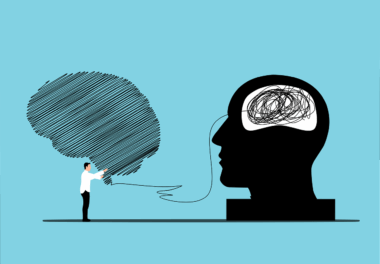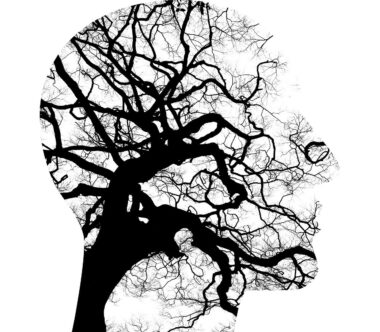Overcoming Stigma: Encouraging Therapy for Eating Disorders
Eating disorders are severe mental health conditions that affect countless individuals worldwide. Often, these disorders emerge from deep-seated societal expectations and personal insecurities, leading to harmful behaviors. Unfortunately, stigma surrounding these conditions discourages people from seeking help, exacerbating their struggles. Many individuals suffering from eating disorders face discrimination and silence due to these misconceptions. For instance, they may be labeled as attention-seeking or weak. As a result, their self-esteem diminishes, making recovery challenging. Awareness and understanding can significantly help combat these damaging beliefs. It is crucial to foster an environment where individuals feel safe to discuss their experiences and seek therapy without fear of judgment. Encouraging open dialogues regarding eating disorders among friends and family can create supportive networks. It is equally important for healthcare professionals to promote best practices by leading with compassion and sensitivity. Everyone deserves a chance for recovery, and effective therapy can be life-changing. By breaking the stigma, individuals may feel empowered to embark on their healing journeys confidently. Informing others about the realities of eating disorders is a critical step in supporting those in need.
To effectively support individuals struggling with eating disorders, we must prioritize access to appropriate therapies. Various approaches can facilitate recovery, such as cognitive-behavioral therapy (CBT) and family-based therapy (FBT). CBT focuses on identifying and modifying negative thought patterns, which can help individuals challenge their beliefs about food and body image. In contrast, FBT involves the family in the treatment process, empowering them to support their loved one throughout recovery. Each individual’s experience with eating disorders is different; thus, personalized treatment plans are essential. Mental health professionals should assess the unique needs and circumstances of their clients before recommending specific therapies. Moreover, establishing a solid therapeutic alliance between the client and healthcare provider enhances recovery. Feeling understood and validated fosters trust, enabling individuals to share their experiences openly. Support groups and community forums also play a significant role in the healing process, offering a sense of belonging. Engaging in discussions with those navigating similar challenges can be empowering. This provides reassurance that they are not alone in their struggles and amplifies the message that therapy is a valuable resource. Access to therapeutic options should be made widely available.
Normalization of Seeking Help
The normalization of seeking mental health support is vital in combating stigma. We must communicate that reaching out for help is a sign of strength, rather than weakness. Many high-profile athletes, celebs, and public figures have openly shared their battles with eating disorders. Their stories help to humanize these struggles, demonstrating that everyone can face challenges, regardless of their status or background. As more individuals share their own experiences, it encourages acceptance and understanding. Schools, communities, and workplaces should promote awareness initiatives that encourage conversations around mental health, focusing on the importance of therapy. Moreover, integrating education about eating disorders into school curriculums can help destigmatize these issues among younger generations. Teachers and school staff should be equipped with resources to support students who may be struggling. Furthermore, creating a culture where conversations around body image are opened more widely can empower individuals by encouraging greater self-acceptance. Sharing educational materials and stories can bridge the gap between awareness and professional help. Hence, normalizing discussions around mental health can pave the way for a more supportive society, allowing individuals to seek assistance without fear.
Creating safe spaces for those experiencing eating disorders can play a substantial role in healing. Support groups conducted by trained facilitators provide environments where sharing feelings becomes easier. Participants can connect over shared experiences, fostering community and understanding. Such interactions may alleviate feelings of isolation or shame that often accompany these disorders. Besides traditional therapy, holistic approaches can also be beneficial. Including mindfulness, yoga, and nutrition education in treatment can cultivate a well-rounded recovery process. Additionally, collaborating with registered dietitians who specialize in eating disorders can enhance clients’ understanding of nutrition and healthy eating habits. Individuals should view their relationship with food in a more compassionate light. Education about actual health risks associated with eating disorders should be a priority. This can help clients realize the importance of recovery and the potential health issues they may face if they ignore their conditions. Integration of physical health professionals into treatment strategies can help extend care beyond the psychological aspect. Ultimately, a multi-faceted approach enables clients to embrace recovery more fully by addressing both physical and emotional elements of their conditions.
Changing Perspectives for a Brighter Future
To reduce stigma around eating disorders, it is essential to challenge societal norms positively. Encouraging diverse representations of body types in media can help reshape harmful stereotypes. The influence of social media has greatly expanded the reach of these notions, often perpetuating harmful ideals. Advocating for body positivity can create an environment where individuals feel accepted, regardless of their shape or size. Health campaigns should focus on promoting the understanding that beauty comes in all forms, emphasizing health above appearance. While it is crucial to encourage healthy lifestyles, this should not come at the cost of self-acceptance. Community programs should foster positive body image initiatives, educate people on healthy relationships with food, and offer support to individuals struggling with eating disorders. Schools must continue implementing campaigns that highlight mental health awareness, encouraging students to support one another. Creating environments where empathy exists is vital for long-term societal change. By taking these proactive measures, communities can gradually shift prevailing narratives surrounding eating disorders, ultimately leading to greater understanding and acceptance in the future.
Education plays a pivotal role in overcoming stigma around eating disorders. Schools and communities should offer training for educators, families, and peers to create informed advocates for individuals in need. Workshops, seminars, and online resources can provide essential knowledge regarding signs, symptoms, and effective interventions. This enables broader communities to approach these issues with empathy and support. Moreover, allies can play an essential role in connecting individuals with healthcare professionals and suggesting therapies that might align with their needs. They can help to foster relationships that allow individuals to feel empowered and heard in their journey toward recovery. Organizations dedicated to mental health awareness can help provide resources for both individuals and their families. Engaging in community outreach programs can ensure that vital information reaches those who need it most. Raising awareness about the realities of eating disorders should be an ongoing commitment, as learning is an evolving process. It’s essential to ensure discussions remain relevant in today’s world, emphasizing the importance of all individuals seeking help without reservation. Every step taken towards educating others is a step forward in breaking the chains of stigma.
Conclusion: Embracing Therapy for Healing
Embracing therapy as a critical component of recovery for eating disorders requires collective action. Society must join forces to dismantle stigma while amplifying support for mental health awareness. The journey toward healing can be daunting, but individuals need to recognize that help is available. Not only does therapy provide tools for navigating the emotional landscape of an eating disorder, but it also equips individuals with lifelong skills for managing stress, resilience, and self-compassion. An essential part of the healing journey includes recognizing that recovery is not linear; setbacks can occur, and this is normal. Fortunately, therapy can provide ongoing support during these challenging times. Individuals must focus on their strengths, not just their challenges, as they navigate their paths to recovery. Celebrating progress, no matter how small, can foster a growing sense of hope and empowerment. Through collective efforts in mental health advocacy, we can chip away at the damaging stigma surrounding eating disorders. By fostering open communication and encouraging therapy, we can assist those who fight these battles daily. Together, we can cultivate a more understanding and compassionate society, ultimately saving lives.
In reflection, encouraging therapy for individuals struggling with eating disorders requires structural and cultural change. All parties involved, including individuals, families, and communities, must actively participate in this initiative. By promoting understanding, accessibility, and normalization of mental health support, we can foster resilience and recovery for those in need. Everyone deserves to experience the fullness of their life without the burden of stigma. Together, we can create a brighter future where individuals feel empowered to seek help. Every effort counts in ensuring that individuals with eating disorders receive compassion, care, and the chance to reclaim their lives. Together, we can build bridges between individuals and the therapeutic resources they need, paving the way for healing and recovery.





